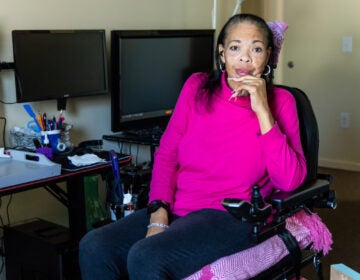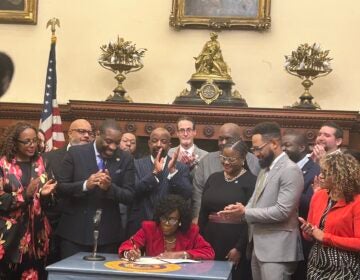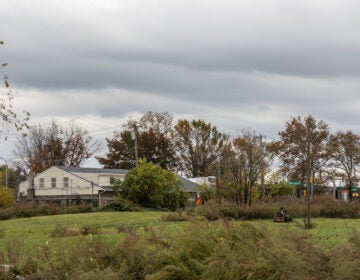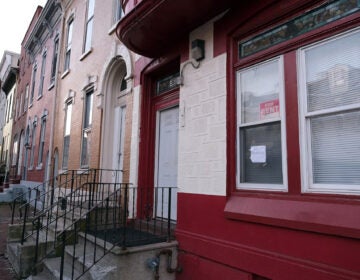‘Lacking a moral compass’: Activists call on Philly officials to repeal cuts to city’s business tax
POWER Interfaith members fear the loss of revenue due to BIRT cuts could raise property taxes and slash critical services.
Listen 1:21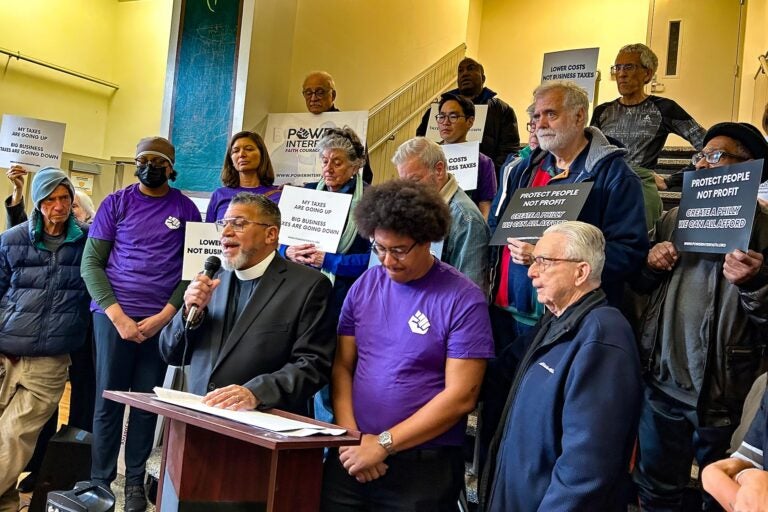
Rev. Gregory Edwards, executive director of POWER Interfaith, speaking at St. Vincent de Paul Catholic Church in Germantown. (Aaron Moselle/WHYY)
Have a question about Philly’s neighborhoods or the systems that shape them? PlanPhilly reporters want to hear from you! Ask us a question or send us a story idea you think we should cover.
Last June, City Council passed a $6.8 billion budget with a string of annual tax cuts meant to help individual businesses and improve Philadelphia’s economic outlook.
Now, a grassroots organization is calling on lawmakers to reconsider a decision they fear will hurt the city’s most vulnerable residents — by shifting the taxpayer burden onto them and harming critical city services, including those provided by recreation centers and libraries.
“Obviously, they are lacking a moral compass to be able to, in the midst of an already broke city, give the city away to billionaires and create our current crisis. This is a man-made, fabricated crisis,” said Rev. Gregory Edwards, executive director of POWER Interfaith.
On Monday, Edwards’ group kicked off its ambitious campaign with a news conference inside St. Vincent de Paul Catholic Church in Germantown, which offers a variety of free, essential services to low-income residents through the nonprofit Face to Face.
As a stream of people filed in and out of the church, speaker after speaker questioned the priorities of the city’s elected officials, who they worry will raise property taxes to make up for scheduled revenue losses from the business income and receipts tax, or BIRT.
The business levy is the third-largest source of city tax revenue after the wage tax and the property tax. It requires companies to pay 0.1415% of their total sales, and if applicable, another 5.81% of their profits.
BIRT was projected to bring in more than $600 million in tax revenue in this year’s budget, according to the city manager’s quarterly tax report.
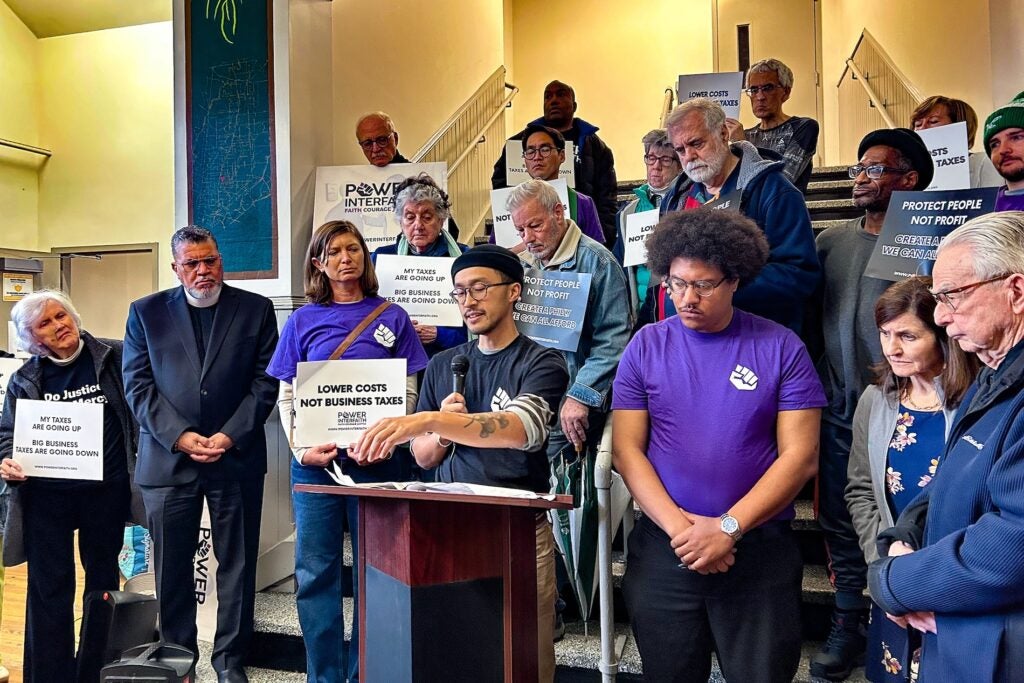
“When you take that much money out of the equation, it has to come from somewhere else. And we know where ‘somewhere else’ usually means in Philadelphia — it’s the poor, it’s the working people, the Black and brown families already hanging on by a thread,” said An Tran, a Germantown resident and member of POWER Interfaith.
City Council President Kenyatta Johnson could not be reached for comment.
A spokesperson for Mayor Cherelle Parker did not immediately respond to a request for comment.
Over the next 13 years, both parts of BIRT will be incrementally reduced.
If no future mayor amends the plan, the net income portion of the tax will be reduced from 5.81% to 5.71% in the first year before it ultimately reaches 2.8% in 2038.
The gross receipts portion will be zeroed out that year after a series of small reductions.
The projected total loss of BIRT revenue between 2025 and 2038 is $3.3 billion, according to research from the Pennsylvania Policy Center, an independent nonprofit based in Harrisburg.
“While we knew we needed to be both pro-growth and fiscally responsible, we also knew that everybody wouldn’t be happy,” said Parker of the BIRT during her “State of Philadelphia” speech in September. “So the business community will say, ‘Those tax investments were approved by City Council and signed into law … but it wasn’t enough.’ But we did the best we could with what we had.”
The current budget left flat the city’s real estate tax rate of 1.3998% of a property’s assessed value. Those valuations have been an ongoing source of concern as property values in some city neighborhoods continue to rise, putting pressure on longtime homeowners, particularly in areas experiencing gentrification.
Over the next week, POWER Interfaith will hold 14 news conferences at congregations across the city to raise awareness about the BIRT cuts and potential impacts.
On Feb.1, the nonprofit will host a Citywide Affordability Summit, where activists will call on elected officials to help them craft long-term solutions to make Philadelphia more affordable.
“If this is not repealed, then what is the plan forward? What is your plan to ensure that our city is fully funded and our people get what they deserve?” said POWER member Kimberly Marsh.

Get daily updates from WHYY News!
WHYY is your source for fact-based, in-depth journalism and information. As a nonprofit organization, we rely on financial support from readers like you. Please give today.




